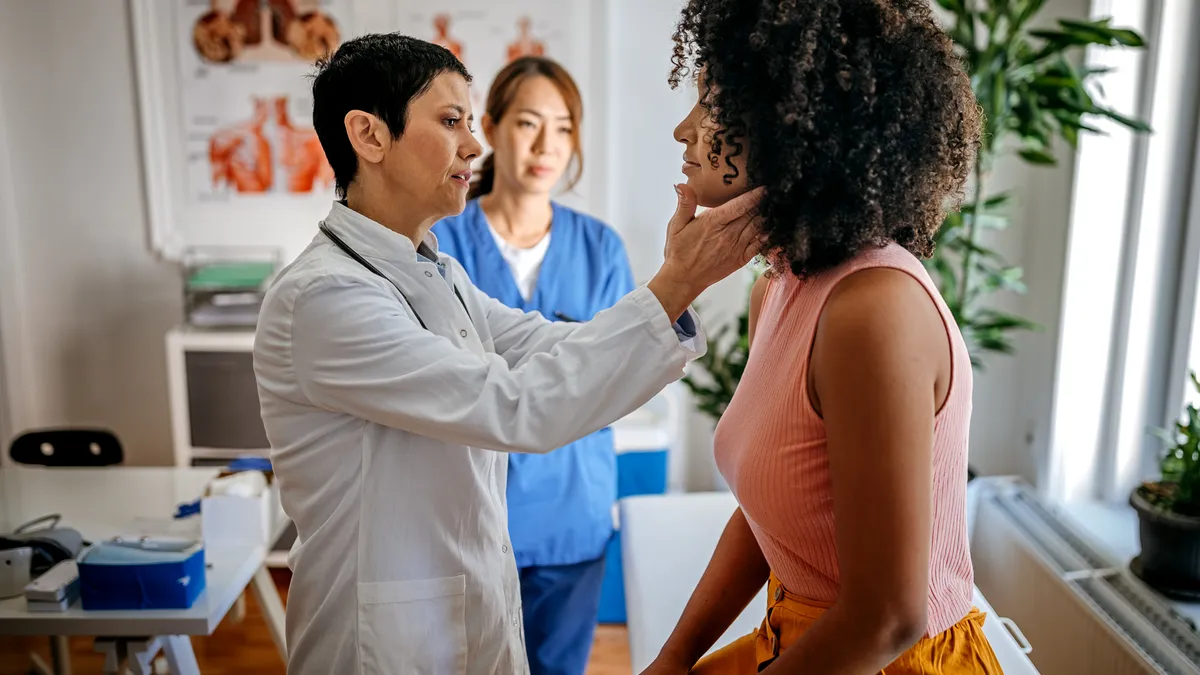As the nation worked to implement lessons learned from 2020's racial reckoning, employers increasingly implemented anti-bias and nondiscrimination training to improve the quality of life and workplace experience for employees and, consequently, the loyalty of customers and clients.
For CME Outfitters (CMEO), a healthcare worker training organization, mounting evidence of unmet needs in patient care prompted pivotal employee training on unconscious bias and healthcare disparities.
Building a better mousetrap
Racial disparities in admissions to medical school, participation in clinical trials and medical research result in a field that is not representative of a growing majority of people in the U.S.
That racial imbalance is also reflected in the way care is delivered to communities of color: A recent study of more than 48,000 hospital admission notes written about more than 29,000 unique patients found that "stigmatizing language appeared more frequently in notes written about non-Hispanic Black patients." Studies have consistently shown a frequency of more dire outcomes for Black patients of American healthcare providers.
Many patients of color don't trust American healthcare, with apprehension explained by these reports and by American history. "We know that Black and Brown patients are often subjected to inequitable care, including access to providers, medicines and follow-up, as well as delays in treatment," said Shari Tordoff, executive vice president of CMEO, in a statement on the company's website. The continuing medical education company aims to raise the standard for equitable healthcare for the entire patient population because, she said in a recent conversation with HR Dive, "we're all patients."
Tordoff is a microbiologist by training, but she said she wasn't happy in the lab. She was drawn to direct patient care as a hospital business manager in ER registration, then as a nurse's assistant before entering the field of medical education. "My business partner and I just felt like we could build a better mousetrap, [with] more focus on the whole patient versus just profit, so we went out and started our own company." That was 20 years ago.
CMEO, a division of KnowFully Learning Group, provides accredited no-cost continuing medical education for primary care physicians, community-based clinicians, specialists, physician's assistants, pharmacists, nurses and nurse practitioners. The company, founded by Tordoff and Senior Vice President Jan Perez, develops and delivers its own content through a number of digital formats.
The heightened racial unrest of 2020 revealed unmet needs and windows of opportunity to challenge structural racism in every industry, Tordoff said. "COVID has also [escalated] division, as it relates to health equity," she continued, and equity was the intersection where CMEO programming had potential to change conversations in the healthcare industry, to make it about holistic care and ultimately improve healthcare outcomes for underrepresented groups.
CMEO can teach a healthcare provider about a new guideline, medical device or an entire landscape of options, Tordoff said, but teaching delivery of optimal care means teaching practitioners to approach the patient with forethought, and a holistic view of the whole patient experience.
Adopted last year as part of a nationwide initiative, and made possible through an education grant from Johnson & Johnson, CMEO's training is a concerted effort to improve healthcare outcomes for all patients, Tordoff said in a video discussing the initiative, "but especially those in marginalized and underserved populations."
A responsibility to pause
Providers need to understand the barriers and stigma that can impede quality care for underserved patients, Tordoff said in a statement about the initiative. Environmental problems like food deserts and poor water quality, for example, are social determinants of health that can exacerbate preexisting health conditions or kick off new ones, and sidetrack healthcare goals. Regularly, social determinants of health both stigmatize and exclude Black patients and other patients of color.
Addressing her peers, Tordoff said, "If a patient's condition requires an infusion every Thursday, then ask 'do you have means to get here every Thursday?' If not, ask 'what can we do to help? Ask 'what kind of resources do you have at home?' Is a patient not taking medication? Did anybody even ask [if] the patient could afford the medication? Do they have access to a pharmacy?" These things, she said, "need to be unraveled before [drawing] the conclusion that a patient may be non-adherent. Don't let bias come in. Let's not perpetuate structural racism."
Gone are the days when the physician tells the patient what to do, and the patient goes along doing what they're told. "That paternalistic view in healthcare is over," said Tordoff. And this applies to all kinds of scenarios, she said — when evaluating job applicants and interacting with colleagues, or in a patient-caregiver relationship. "Instead of jumping to conclusions about individuals, we have a real responsibility to pause." This work, Tordoff said, "really is about a partnership, now."
Training in action
CMEO's bias training teaches practitioners to overcome barriers to equitable delivery of healthcare through dialogue, by asking questions that help patients feel heard. Tordoff said learners, healthcare providers, admitted having given no thought to something like proximity of a pharmacy to patients' homes, for example. "That's really uncovered a lot of opportunities for us to close the gap on 'non-adherence.'"
Tordoff said CMEO does a lot of work in conversations around gender as well. "We have a downloadable checklist that educates people about pronouns." To identify personal bias, CMEO encourages course participants to take the Implicit Association Test produced by Harvard's Project Implicit. The IAT measures attitudes and stereotypes, and it's free. "Even people who think they don't have bias should take it. It's a great first step." Anything that moves the needle is worth consideration, Tordoff said.
Beyond retraining industry professionals in the ways of patient care, there's hope the work will encourage patients to feel as though healthcare practitioners are looking at every patient, and seeing each one "as a whole individual," said Tordoff. "Recognizing where patients are coming from is at the [center] of everything we do, and that's really our mission as we move forward."












